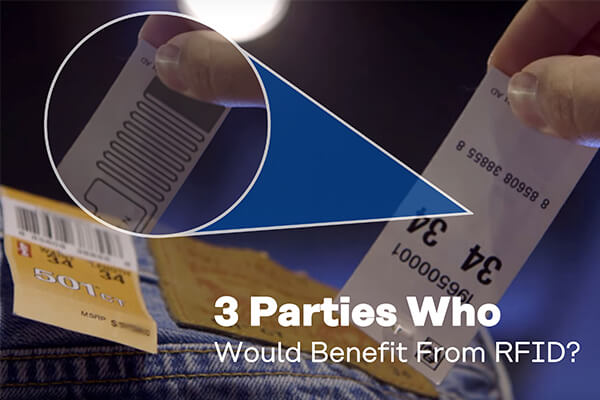Today, businesses are adopting RFID technology in production and logistics as it allows them to track and manage both inventory and the entire supply chain easily. RFID requires less monitoring, which frees employees to focus more on other tasks. This technology is beneficial to a seller, retailers, and consumers in many ways. These include;
Seller
RFID technology leverages the use of radio waves to identify and track objects. This is beneficial to the seller in the supply chain and management of internal processes. Sellers benefit from this technology in that they can;
1. Track assets and manage inventory
RFID ensures they can track all their items without the need for physical counting as it shows the number of each particular item, its location, and its stage in the supply chain.
2. Improve availability and data accuracy
With RFID technology, data is collected and uploaded electronically, which eliminates errors such as missed entries or duplication of data, especially when dealing with large volumes of data.
3. Better production control
With RFID technology, sellers can customize complex manufacturing processes to easily identify individual items and monitor their movement to ensure they end up in the proper line of production.
4. Saves time
RFID technology allows sellers to automatically track the flow of items in the supply chain, therefore, eliminating the need for manual filing of information.
5. Improved business revenue
RFID technology saves on production costs as sellers can efficiently control production, therefore, they achieve higher profit margins.
Retailer
RFID technology is used in retail to achieve a greater level of inventory accuracy, especially on a large scale. The technology has the capability of providing customers with a better service as it improves security across all your retail stores. Retailers have adopted this technology for;
1. Improved stock visibility
They can reliably achieve full item-level stock visibility across their warehouses and retail stores due to the ease and accuracy of RFID stock counts.
2. Real-time data and analytics
They can get a better idea of the stock at hand, traceability, and stock checking.
3. Improved product visibility
During peak periods, retailers can ensure high product availability which is essential in keeping retail sales up.
4. Improving customer experience
Due to high product visibility for customers, adopting RFID can provide them a much better service in-store and employees can have more time to attend to each customer.
5. Increasing process efficiency
RFID can read hundreds of individual items at once making stock tracking more efficient and seamless.
Consumer
The adoption of RFID technology is beneficial to the consumer because;
1. Increased checkout speed
RFID technology speeds up the in-store check-out process which is a large driver of customer satisfaction. Also, the store staff has more time to concentrate on the customers in-store or process their online orders and pick-ups.
2. Ensures product integrity
In the healthcare industry, RFID technology reduces the counterfeiting of pharmaceutical drugs which ensures the integrity of products purchased by consumers.
3. Customer satisfaction
With RFID product visibility, store staff can focus on each customer to ensure their needs and met.
4. Better product identification
Customers can easily identify products with RFID tags which makes shopping more convenient for them.
5. Airport baggage handling
RFID tags are flexible, accurate, and highly secure. Using the tags, customers can track their baggage and its exact arrival date.
Nexqo is a professional RFID & NFC hardware provider with more than 10 years of experience in the RFID industry.
Click here to learn more about the products that you can use in your project. If you are not sure, welcome to contact our sales experts any time.
